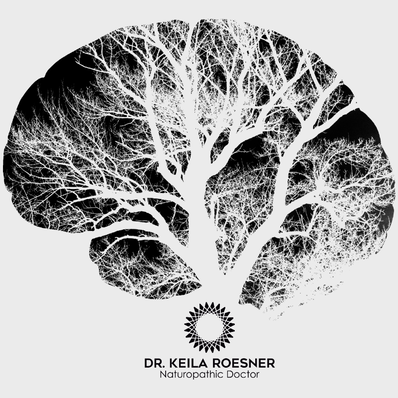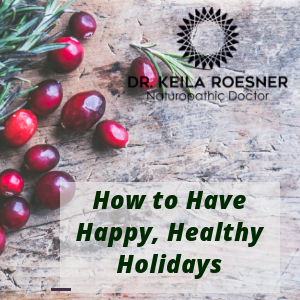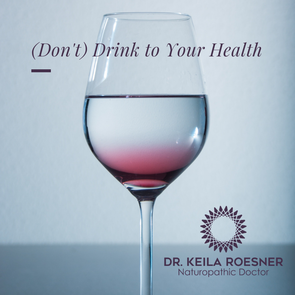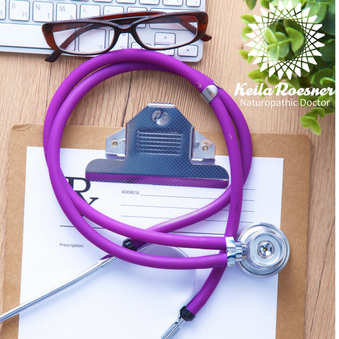Keep Your Metabolism Strong and Hormones Balanced Over The Holidays – A Naturopathic Perspective12/18/2019  Do you have big plans for January? Many of our patients say they’d like to take control of their health in 2020 (New Year, New You, right?). That often includes losing some extra pounds. However, it’s always important not to get caught up in the numbers on the scale. Instead, a good alternative goal is to focus on lowering your body fat (but only if that would help your general health) and raising your energy levels. In other words, your goal should always be to improve your overall quality of life, not to chase after an often-elusive number on a scale. No matter why you want to lose weight, it’s important to approach your New Year’s resolution with a strategy. That will raise your odds of success. (Here’s a sobering fact: About 80 percent of New Year’s resolutions are abandoned by February.) The Run-Up to the New Year Think about it. We often coast through December, eating, drinking, and neglecting our usual fitness routine. Then January arrives and we expect our body to adjust to an austere new regime. It’s no wonder that many people give up. Believe it or not, it’s possible to prime your body to get ready for January’s resolutions/yourreallife while still enjoying the holidays. That includes revving up your metabolism so it’s ready to deal with dietary changes. And it’s even possible to do this during the busy month of December. Here are some steps that can help. 7 Ways to Avoid Packing On Extra Pounds This Holiday Season
Yes, improving your metabolism can feel like a daunting task this time of the year. However, taking a few simple steps now can help get ready to meet your New Year’s resolutions head on! If you’re not sure how to begin with all these tips, the best plan is to speak with an expert! We’d be happy to help you create a unique plan that suits you and would love to have a complimentary Health Discovery Session with you. Sources:
1 Comment
 Should you be concerned about your cognitive health? Consider these facts:
Everyone experiences some moments of “brain fog” from time to time, whether they’re trying to find their keys or are struggling to remember a name. As we age, these little moments of forgetfulness become more worrying. And in fact, the damage from Alzheimer’s can start up to 10 years before symptoms become troublesome. But stress, fatigue, and nutritional deficiencies can all contribute to cognitive issues, even without Alzheimer’s. The good news is that foggy thinking and poor memory don’t have to be a normal part of aging. Cognitive decline is not inevitable. And the steps to protecting our brain health can also help the rest of our bodies - further evidence that everything is connected when it comes to our optimum health! So what can you do to maintain peak mental fitness? Here are some of my favorite high-impact strategies: Get enough sleep. A great deal of research supports a link between brain health and adequate sleep. Scientists think the relationship may work both ways: not getting enough sleep can lead to cognitive decline, but cognitive decline can also cause sleep problems. Either way, the best approach is to be proactive. For example, avoid substances like caffeine or alcohol before bed. Practice insomnia.htmlgood sleep hygiene by sleeping in a cool, quiet room and pay attention to when the body wants to sleep. Your circadian rhythm is your natural sleep cycle, which for many people means unwinding and falling asleep around 10-10:30 pm. Fighting it and staying up later sends an adrenaline rush to your body to keep it awake. Contact our office if sleep issues interfere with daily living. You may also find that following the other tips on this list help with sleep – did I mention that it’s all connected? Focus on a plant-based diet with plenty of healthy fats. Good nutrition fuels our brain. Processed, low-nutrient foods can lead to inflammation and oxidative stress. The result can be cognitive and mood issues. Up to 95 percent of the serotonin in our bodies is produced in our gut, so what we eat can have a profound impact on our emotions and the way we think. As a result, having adequate “good” bacteria in our gut can reduce the inflammation throughout our bodies, so it’s important to eat with this in mind. Some important nutrients for brain health include:
Move to keep your brain active. Exercise is a must when it comes to brain health. Not only can cardio activities like swimming and walking ease stress, but physical activity can also increase the size of the hippocampus. That’s the part of our brain responsible for verbal memory, among other important functions. Which exercise is best? The best activity is always the one you’re most likely to do, but experts say to strive for 75 minutes of intense activity or 150 minutes of moderate activity every week. As an added bonus, exercise earlier in the day can help you sleep! Keep learning. You’re never too old to learn something new. In fact, acquiring new knowledge can help keep your brain young. One study found that adults who learned a “complex skill” such as quilting or basic coding had improved memory function after only three months. And knowing a second language (even if you learn it late in life) can help slow memory loss. My favorite is practicing piano. Relax. You’ve probably noticed that when you’re stressed, your thought process isn’t as clear as it is when you’re relaxed. Scientists confirm that even short-term stress can affect the hippocampus. It’s important to note that most studies refer to a relationship between perceived stress and memory. We all have negative events in our lives and some of these can’t be avoided. But we can change how we react to them and how we deal with daily stress. It’s possible to reframe the stress of daily life and change how we perceive it. Yoga, meditation, tai chi, and cognitive therapy are all effective ways to reduce our feelings of stress. It’s important to remember that there isn’t necessarily a “magic bullet” solution to protect your brain function. As with all elements of well-being, maximum health is the result of a holistic approach. By taking conscious steps to protect your brain health, you can minimize memory loss. Proper brain function is also linked to hormonal balance. Having an imbalance of your cortisol levels, estrogen, melatonin, pregnenolone, testosterone or thyroid can all contribute to memory loss, confusion, and issues concentrating. Testing and treatment for imbalances can help get your brain working at peak function again. And if you’ve noticed any symptoms that worry you, it’s important to check them out right away. Please schedule a complimentary Health Discovery session with our office if you have questions about your brain health! We excel at assessing the key building blocks for brain health and helping you create an individualized plan to keep you feeling sharp. Sources:
 Are you enjoying the final stretch of the year? It’s a fantastic and fun time of the year. Unfortunately, it’s also a difficult period for maintaining healthy habits. Check out our list of the top 10 ways to stay healthy and happy over the holiday season. 1. Reframe your holiday expectations. Consider this: If you think of the holidays as an exhausting test of your endurance, and holiday treats as evil temptations to be resisted with all available willpower, how will your body react? That might be a bit of an exaggeration, but many patients come into the office at this time of the year showing signs of anxiety and tension. In fact, one study found that 90 percent of adults feel stressed over the holidays. Isn’t this supposed to be a joyous time? These high stress levels may be at least partly attributed to the fact that many of us simply have more to do at this time of the year. Because we have more tasks to keep track of (even if those tasks are going to parties, buying gifts, and other fun stuff), our prefrontal cortex (in our brain) is overtaxed. This can affect our memory and overall ability to cope. Add in the extra pressure of maintaining a perfect diet and workout schedule, and you have a recipe for sleep problems, digestive difficulties, and tense muscles - all of which can add to our stress. And when we’re stressed, we tend to overeat. You can probably see why holiday stress can create a vicious cycle of guilt. Reframing our expectations that we need have a “perfect” holiday while staying disciplined can end the frustration. So don’t beat yourself up if everything doesn’t go as planned. In the long run, our happiest memories are sometimes the ones when things didn’t go as we’d pictured them, or the times we slowed down to take in the moment. Letting go of expectations of perfection (from ourselves and others) will ultimately help our health. 2. Play games. If you get together with family or friends in the next weeks, why not introduce a low-tech way to have some old-fashioned fun by playing board games? Board games can also offer cognitive benefits - not that you need an excuse to start rolling the dice. 3. Stay mindful. A mindfulness practice has obvious benefits when we’re extremely busy. Even if you’re not a regular meditator, just five minutes a day of meditation can help you cope with holiday stress. And why not share the love? Suggest a short meditation before holiday meals. It can set the tone for a peaceful celebration. Studies show that group meditation can have powerful results. Our office has regular drop in meditation groups! 4. Get moving. Fitting in some exercise can be easier when you mix it up by with physical social activities with loved ones. Snowshoeing, making snowmen, skating for those in the cold climates: there are plenty of options. If you’re not a cold-weather person, try bowling or a trip to the pool. You may not end up with six-pack abs, but might start a new holiday tradition. Suggesting fun activities for social gatherings also helps take the focus off food. 5. Cook up some love. Looking for a unique gift idea? Want to stay away from the mall and its atmosphere of seemingly relentless consumerism? Try baking some holiday gifts. For example, put some homemade sweet and spicy holiday almonds into a fancy jar (you can find a good recipe here: https://mywholefoodlife.com/2012/11/28/sweet-and-spicy-holiday-almonds/). Or wrap up a box of vegan hazelnut cups. (This recipe is amazing! https://www.mindbodygreen.com/0-16557/like-nutella-try-these-vegan-hazelnut-cups.html) or even start making some natural soaps as gifts, it’s easy, natural and fun! 6. Go green. When you’re thinking about ways to keep your body healthy over the holidays, don’t forget that the planet deserves love too. It’s easy to have a green holiday season (even if it’s snowing). Use recycled wrapping paper, serve food on real plates (not paper), and consider turning the heat down a degree or two for large gatherings (maybe you’ll encourage guests to bring out their tacky holiday sweaters). To conserve electricity, use LED lights only, and defrost your freezer before you load it up with holiday baking. 7. Learn to say no. This is a tough one for many patients who come to the office. However sometimes refusing a social invitation or a request to do work is the healthiest choice for everyone involved. If you find it hard to turn down an invitation or request, remember that you don’t have to apologize. Decline right away and resist the urge to make up an elaborate excuse. Suggest an alternative activity or a later date - but only if you really want to. 8. Keep your gut healthy. Sugar laden holiday treats, cocktails and parties galore can really put a damper on your gut health. Rightfully so an imbalance of extra sugar lowers both your immune system and can lead to an imbalance of healthy bacteria in the gut. Take some high quality probiotics and some digestive enzymes prior to meals to give your gut a healthy boost and some likely much needed assistance! 9. Start some healthy food traditions. The internet is bursting with healthy holiday recipes. Think about your loved ones’ food preferences and find some yummy dishes to bring to gatherings. For example, here are some outstanding vegan dishes: https://minimalistbaker.com/christmas-recipe-roundup/. Other guests might thank you for providing an alternative to Aunt Mary’s special salad! Try replacing carb heavy side dishes with healthy ones like Rutabaga and carrot mash or creamy butternut squash and thyme! Looking up Paleo versions of your favorites is often a good place to start too. Remember it’s OK to say no! 10. Be grateful. The holidays don’t always go as planned. Sometimes we have to go to work instead of eating great meals. Sometimes we miss people who are no longer in our lives. It’s normal to experience sadness at this time of the year. Acknowledge your feelings and be gentle with yourself. Take some time to think of the good things (even if they’re not always picture-perfect). Grateful people experience better sleep, more optimism, and improved relationships. And we could all use a bit of that at this time of the year. Happy New Year from all of us! We look forward to working with you to create a fulfilling and healthy start to 2019. Sources
 A glass of wine with dinner. A beer after a hard day of work. It’s not hard to integrate an occasional drink with a healthy lifestyle. Whole genres of music are written essentially about drinking (I come from a country music family!). In recent years, we’ve read that red wine is rich with antioxidants, and that an occasional beer can raise “good” cholesterol or stimulate lactation for breastfeeding mamas. But results from a new study suggest that even moderate alcohol consumption - the kind we tell ourselves is healthy - may actually be detrimental to our health. In other words, the much-heralded health benefits of drinking don’t outweigh the risks. As a result, there is no safe level of alcohol consumption. A recently published research study looks at data collected in almost 700 studies, spanning 195 countries and territories. Some of the findings are startling:
The authors of the study are firm in their conclusion: “By evaluating all associated relative risks for alcohol use, we found that consuming zero standard drinks daily minimizes the overall risk to health.” In other words, the only safe amount of drinks is none at all. This finding differs from many earlier studies, which often concluded that moderate drinking was the best approach. Why did this study reach a more decisive conclusion than previous examinations of alcohol’s effect on health? Several factors come into play. This study was careful to consider the ways they measured consumption. For example, researchers looked at regional variations in alcohol consumption that could be attributed to things like tourism. In addition, the study looked at alcohol’s impact on 23 different health-related problems. For some of those problems (such as heart disease), mild alcohol consumption had a positive effect. But that positive effect was balanced by a greater negative impact on other health issues (cancer is a strong example). What does this mean for you? If you drink, should you stop? Alcohol consumption is a very personal decision. This study looked at the big picture, worldwide. It was not studying individuals, but rather analyzing vast amounts of data previously collected, specifically looking at the risks for the 23 health issues. That data was conclusive. But it’s up to you how you apply it to your own life. This latest study can’t, for example, tell you if it’s OK to have some wine for New Year’s given your own unique genetics and other lifestyle factors. One thing is clear: If you’ve told yourself that drinking is healthy, you may want to reconsider that rationale. That doesn’t necessarily mean you must immediately quit. However in deciding whether or not alcohol is something you want in your life, it’s best to be realistic about the health risks. If you’re wondering about alcohol, talk to a healthcare practitioner. And be upfront about your drinking during the visit. Many people underreport how much they drink, but it’s best to be honest. You want to have an open discussion about all of your health concerns. Remember that healthcare providers aren’t looking to judge you: they want to work with you to create your best life. You also want to look at your own medical history and perhaps check out more specific studies. For example, another recently published study concluded that alcohol is the biggest controllable risk factor for dementia. If you have other dementia risk factors that are out of your control, such as a genetic history, you may want take action on the things you can control. Similarly, if you have a history of depression, consider alcohol’s impact on mental health. If you are trying to control your weight, the extra calories of alcohol aren’t going to help. Alcohol can also lower your judgment and keep you from making your best decisions. Alcohol intake may also increase your risk of estrogen dominance, and is a well-established risk factor for breast cancer. Some patients express frustration at the different results they see in health studies: One minute something is good for you, then suddenly we need to avoid it! Studies on alcohol use can be proof that when we read an eye-catching health-related headline, we need to look beyond the numbers. One thing to keep in mind is that the media will typically seize the most dramatic sound bite, although it’s impossible to always convey the nuances of a well-run scientific study in a short headline. For example, a news story doesn’t always mention who funded the study. For the record, the Lancet study on alcohol safety was funded by the Bill and Melinda Gates Foundation, while some others that emphasized alcohol’s benefits were funded by companies who sell alcohol. That doesn’t necessarily mean the studies are false, but we should all remember the funders have a vested interest in how the results are reported. Follow the money! As well, correlation doesn’t always equal causation. That’s sometimes hard to capture in reporting large studies. In fact there are studies that show that Resveratrol an antioxidant found in red wine is beneficial to your health however if you have other health issues like digestion.htmlpoor gut function, low energy, sleep issues and more, alcohol will likely have negative impacts and could make your health issues worse. One can absolutely gather the benefits of resveratrol by eating organic grapes with the skin on, rather than drinking wine, without negatively affecting other health issues - but that doesn't make for sexy headlines! Whenever you’re confused about a health issue, the best approach is to consider it from a sample study of one: yourself. That means talking to a healthcare provider about your own personal history and choices and your current health concerns. We can help you sort through all of the information you face every day and figure out what’s best for your unique body, in fact we are experts in doing just that! Book your complimentary Health Discovery Consult to discuss YOUR unique health goals. References  Estrogen – it’s not a dirty word. Estrogen plays an important role through the course of our reproductive lives and beyond. It regulates our menstrual cycle, strengthens our bones, controls our cholesterol, and much more. When our estrogen levels go “out of tune” we experience PMS or menopausal symptoms. But even before menopause, varying levels of this vital hormone can wreak havoc. That’s because estrogen requires a delicate balance with other hormones. When that balance is disturbed, we can experience a wide range of frustrating symptoms. This hormonal imbalance often occurs during a particularly busy time of our lives, the period from about age 25 through to menopause. As a result, our practice sees many women who are dealing with unexplained weight gain, mood swings, and libido problems. But there is help available. A few simple steps can help you restore balanced estrogen levels and feel like yourself again. How Do You Know if You Have Estrogen Dominance? Estrogen dominance can impact many areas of our lives, with symptoms that range from subtle shifts to major disruptions in wellbeing. Many women in this age group assume these issues are a normal part of aging or a consequence of their busy schedules. Just because it is common, does NOT make it a healthy normal! Even a slight imbalance in hormone levels can lead to a number of problems. Symptoms can vary greatly by person, but often include:
Does that list look familiar? I see many women in my practice each month with complaints like these. I totally understand how frustrating they can be, especially when you’re unable to find effective treatment. And, of course, the complex relationship between estrogen and our emotions can only magnify the frustration. Who wants to feel irritated about feeling irritable? It’s not only women who can experience estrogen dominance. You may be surprised to know that men can suffer an excess of estrogen as well. In men, estrogen dominance can manifest a bit differently, with some of these symptoms being common:
What Causes Estrogen Dominance? To understand estrogen dominance, we have to consider the role of another important hormone, progesterone. Progesterone and estrogen maintain an often tricky seesaw in our bodies. Prior to menopause, the balance shifts at different stages of the menstrual cycle. Estrogen dominance isn’t necessarily a surge of estrogen, but an imbalance in that seesaw. Simply put, estrogen dominance happens when the seesaw tips to one side because there is not enough progesterone to balance out the estrogen. There’s actually no “set” number we can measure that proves an estrogen dominance diagnosis. It’s the overall hormonal profile that is important – the DUTCH test is an extremely valuable tool that I use regularly for assessing this balance. How does estrogen become dominant? A key factor is the timing. Or, to be more specific, the time of our lives. Consider a normal menstrual cycle during our reproductive years: After we ovulate mid-cycle, our bodies produce progesterone to balance out estrogen. But as we near menopause, we often have some menstrual cycles when we do not ovulate. As a result, there is not enough progesterone to balance out the estrogen. Enter estrogen dominance -- and its long list of possible symptoms. To a certain extent, estrogen dominance is a natural part of our aging process. However, recent years have seen a rise in estrogen-dominance complaints, and our busy lifestyle may be a big factor. Environmental and behavior issues can increase estrogen levels, tipping the seesaw even further. What’s to blame? Take a look at this list.
How Can You Restore Hormone Levels? Our practice can work with you to re-balance your hormonal havoc. Starting with an accurate diagnosis, we can create a lifestyle plan that works for you. As a starting point, these changes are recommended:
Do the estrogen dominance symptoms sound a bit too familiar? Please contact our clinic and we’ll get to the bottom of what’s going on and create a plan of action to bring your body back to good health. References  On average, how many hours a day do you spend sitting, uninterrupted? One hour? Two hours? Three…or more? Our ancient ancestors spent much of their time on the move, hunting and gathering to serve their basic needs, as well as more play and family time. Obviously, the balance between movement and fuel has shifted dramatically over time, most notably since the technological revolution. Unlike our ancestors, we no longer search for food. Instead, we are now on a quest for time, as hours fly by while we’re hunched over a keyboard. On an average day, many of us are likely sitting more than we are moving and consuming more calories than we are burning. Many of us regularly put in eight-hour workdays seated at a desk – sometimes even more. We get headaches and neck tension and need to see our massage therapist more often. We then go home and unwind on the couch, binge-watching our favourite shows. The hours begin to add up. Maybe we make a little time to fit in some exercise each day; however, with more conveniences at our fingertips, we can do a lot more while moving a lot less. The longer we sit, the more our bodies begin to feel tight, tired and sore. It’s clear that too much sitting isn’t good for us. But did you know that it can even lead to earlier mortality? Sitting and Premature Death That’s right…too much sitting can kill you! In fact, some are saying that “sitting is the new smoking” because its impact is so significant. According to recent research from the Journal of the American Heart Association, prolonged sitting presents similar health risks as smoking, such as heart disease, lung cancer, and diabetes. It also increases premature death by about 50 percent! Even more surprising, too much sitting increases your risk for an early death regardless of your fitness level or other lifestyle habits. You simply cannot undo hours of sitting with a 20 minute walk (although you should still keeping walking). But sitting isn’t just bad for your heart or metabolism; it is also bad for your brain! Researchers at the University of California have discovered a connection between sedentary behaviour and thinning regions in the brain that is critical to new memory formation. So, what if your job requires you to be at a desk, all day, every day? Are you supposed to quit? Well, of course, that’s not practical. However, there are a few simple things you can do to ensure that you keep your body regularly moving for a longer, healthier life. Tips to Sit Less & Live Longer
Do you spend excessive amounts of time sitting? Do you experience any health problems that you think could be related to a sedentary lifestyle? Let’s chat and get to the root of your health issues. Book an appointment with our clinic, and together we will find ways to improve your overall health and well-being so that you can live your life to its fullest. Call 519-275-2187 ext. 7 or Book Online to get started. In health, Dr. Keila Roesner BHSc ND
References:
 Pain, swelling, redness, immobility and heat -- these are all common signs of inflammation with injuries or an infection. Chronic inflammation also occurs inside our body and can present itself in other ways. When inflammation triggers sensory nerve endings, it can result in symptoms such as fatigue, rashes, and chest, abdominal and joint pain. What is Inflammation? Inflammation is a natural function with a bad reputation. It’s a word most of us associate with pain, discomfort and poor health -- yet its ultimate purpose is actually to help us. Without inflammation, injuries could fester and infections could become deadly. When the body is injured, inflammation is a signal to the immune system to send white blood cells so the healing process may begin. Unfortunately, when inflammation continues on for too long, it can potentially trigger numerous other chronic health issues in the body including cancers, depression, food sensitivities and asthma. In fact, some say inflammation is the “new cholesterol” due to its direct link to heart disease. In some cases, inflammation occurs when the immune systems revolts against us and attacks our own bodies. Autoimmune diseases include rheumatoid arthritis, type 1 diabetes, IBD, among dozens of others. There are over 80 different autoimmune diseases. Top Tips to Reduce Inflammation First, let’s take a quick look at inflammatory foods that you definitely don’t want to put into your body. You probably already know all the usual suspects by name – sugar and artificial sweeteners, fried foods and saturated fats, processed meats and grains, dairy, caffeine and alcohol. These foods can disrupt gut bacteria, spike insulin levels, and bolster inflammation. Identifying and eliminating your food sensitivities via IgG Blood testing or an elimination diet can be a very helpful next step. Wondering what those anti-inflammatory foods are? The good news is they are delicious. 1. Eat Raw, Organic Fruits & Veggies Organic foods are a great place to start when looking to adhere to a more anti-inflammatory diet. Grown in mineral-dense soil, organic foods tend to be more alkalizing and have a higher vitamin and mineral content. In order to keep those vitamin and mineral levels high, it’s also helpful to eat raw fruits and veggies, which are also known as life-giving foods. Cooking can deplete minerals, which is why it’s important to take every opportunity you can to get eat fresh and raw so you get to enjoy the full nutritional benefits. For example, Vitamin K is found in dark leafy greens like broccoli and spinach, and is excellent for reducing inflammation. 2. Add in lots of Alkaline foods In addition to fruits and vegetables, nuts and legumes are also alkaline foods that can help balance your pH and reduce acidity. While being mindful of your body’s pH, you might be wonder about the impact of acidic foods, like tomatoes or citrus, and how they affect inflammation. Surprisingly these foods don’t create acidity in the body. Instead they may actually help to restore your pH balance. Even apple cider vinegar is alkaline-forming (however, other vinegars are not). 3. Fish & Plant Proteins Believe it or not, most high protein foods, like meat, can actually be acid forming. In this case, plant proteins, such as almonds and beans, are great alternatives to reduce acidity and inflammation. Need your meat? Then eat more fish. Fish oils, as well as other foods rich in healthy fats like omega 3, are proven to have a variety of health benefits, including significant anti-inflammatory effects. Fish is also a great source of Vitamin D. Vitamin D deficiency has been associated with a wide range of inflammatory conditions. Grass-fed meats are a good option if you prefer red meat, due to their higher concentration of conjugated linoleic acid and omega 3s. 4. Antioxidant-Rich Foods Those susceptible to chronic inflammation may also benefit from supplementing their diets with food sources that contain bioactive molecules. For example, curcumin is the compound found in turmeric root that gives curry its bright yellow color. A powerful antioxidant, curcumin’s ability to reduce brain inflammation has been shown to be beneficial on both Alzheimer’s disease and major depression. Curcumin has been shown to not only prevent memory problems from worsening, but also to improve them. Complement your curry with a little watercress salad on the side, including pears, dill weed, onion and chives – all sources of the antioxidant known as isorhamnetin. Add a little red wine and some berries for dessert, which are rich in resveratrol, and you’ve got yourself an anti-inflammatory party. Resveratrol is an antioxidant produced by certain plants in response to injury or when under attack by bacteria or fungi. This is what makes dark-coloured grapes and berries such excellent health boosters for your body. And of course, you can’t forget the dark chocolate! The flavonoids found in cacao are extremely potent antioxidants and anti-inflammatory agents, which are great for your brain and your heart. New research also shows that consuming dark chocolate with a high concentration of cacao (minimum 70% with 30% organic cane sugar) has a positive effect on stress levels and inflammation, while also improving your memory, immunity and mood. You read that right – chocolate really is good for you (but make sure its good quality and that you are not over doing it). 5. Going Beyond Diet- get your stress in check! While diet definitely plays a role, stress is also a major contributor to inflammation in the body. Stress can be triggered by lack of sleep, lifestyle changes, or any other number of factors. Getting a good night’s rest and making time to meditate or practice other stress-reducing activities, like yoga or Tai chi, are also very effective ways to promote good health and reduce inflammation. All it takes is a few conscious decisions about your diet and lifestyle and you are on your way to a healthier you.
Please feel free to contact our clinic and we can find your best solutions together. Call or book your complimentary Health Discovery session at 519-275-2187 ext. 7 or book online. In health, Dr. Keila Roesner BHSc ND
References

It is a persistent ache-in-your-bones feeling, like walking through mud every day and struggling to do the little things. It is the disorientation of not feeling like yourself for the past few weeks, months or years. It clouds your brain, steals your sense of humour and weighs heavily on your relationships. And then there’s the guilt and self-judgement about why you just can’t seem to get it together. One of the biggest struggles that people with persistent fatigue face is that outwardly they look normal. Coworkers, friends and families may offer “helpful” suggestions about being more organized or going to bed earlier (a great point, but not THE point) or completely fail to understand. Even physicians may struggle to help once the basic blood work comes back “normal”. Lifestyle factors can and do play a massive role, so it is critical to ensure that you are getting enough good quality sleep, eating well, exercising, managing stress and taking good care of yourself. Working with a therapist, registered massage therapist, personal trainer and your health team can be helpful to make sure you’re covering your bases. If you are already addressing these areas and still feel like something is missing, Naturopathic Medicine can be a great solution. The next step is digging deeper and doing a thorough investigation to determine the cause of the fatigue and how these factors might be affecting your overall health. Here are some of the most important lab tests that we run to assess the fatigue you’re experiencing. Ferritin and iron panel – ferritin, % saturation, serum iron and total iron binding
Vitamin B12
Thyroid Panel – a full panel includes TSH, free T4, free T3, reverse T3 and anti-TPO
DUTCH Hormone Test
Autoimmune and Inflammatory Markers – hs-CRP, ESR, ANA, rheumatoid factor, tissue transglutaminase IgG and/or IgA
Organic Acids Test
Other factors to consider: You know yourself best. If you feel that something is off, you are probably right. It is better to know where you stand and choose to work with a health care provider that can offer you the evaluations you need to get to the bottom of things. A thorough investigation is important, but it is even more important to have a plan in place to address what you find. Diet and lifestyle factors like how you eat, how you move, how you sleep and managing your stress will ALWAYS need to be a part of any treatment plan you undertake. It can be easy to get caught up in a complicated regimine of supplements and medications, but focusing on a strong foundation is what really determines your outcome. If you have “tried everything”, have you been consistent enough? Being fatigued IS exhausting and it is only natural to get excited about the next newest thing… but nothing will work if you don’t give it a fair shot. You need a team. The support of a partner or friend or online community can make a world of difference when you are suffering from an invisible illness. Work together with your health care providers to get the right assessments and guidance to help you recover. If you feel unsupported, unheard or like you are bothering your provider, find another professional to work with that will take your concerns seriously. Working with a Naturopathic Doctor to address the causes of chronic fatigue can be invaluable to your recovery by helping you systematically address each of the areas above and make a concrete plan based on YOU. If this sounds like you, I invite you to schedule a complimentary Health Discovery session with me to talk more about your specific concerns. Please share this article with someone you know that is suffering. In health, Click here for more information regarding the tests and services we offer.
References:
|
Top 75 Naturopath Blogs & Websites For Naturopathic DoctorsAuthorDr. Keila Roesner is a Naturopathic Doctor. When not treating patients she is also an enthusiastic barefoot-strolling, music-loving, yoga-doing kitchen wiz - who also happens to be a wrestling fan. Categories
All
|
Let us take you from hormonal to whole.
|
Dr. Keila Roesner, BHSc ND
Naturopathic Doctor, Hormone Warrior and Your Wellness Cheerleader 247 Church Street, Stratford ON N5A 2R7 (519) 273-0900 [email protected] |
|















 RSS Feed
RSS Feed